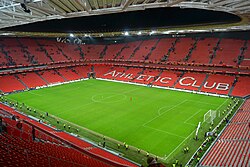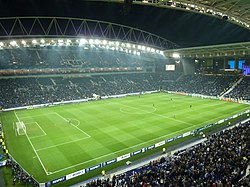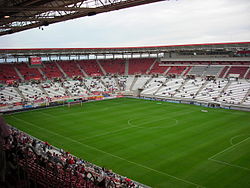
Spain and Portugal 2018 was an official joint Iberian bid for the right to host the 2018 FIFA World Cup. The International Federation of Football Association (FIFA) invited its member associations to bid for either the 2018 or the 2022 final tournaments, or both. The Portuguese Football Federation (FPF) and the Royal Spanish Football Federation (RFEF) submitted together a bid for both editions, but with the focus on winning the privilege to host the 2018 finals. Due to the withdrawal of all non-European bids for the 2018 edition, the Spanish-Portuguese bid, and that of all other European bidding nations, were effectively considered ineligible for the 2022 campaign.
Contents
- Schedule
- Details
- Potential venues
- Submitted bid venues
- Rejected bid venues
- Aftermath
- References
- External links
On December 2, 2010, after a vote of the FIFA Executive Committee at its headquarters in Zürich, the Iberian bid lost the 2018 hosting rights to Russia, in a two-round voting, collecting seven votes against Russian's thirteen in the final round.




























